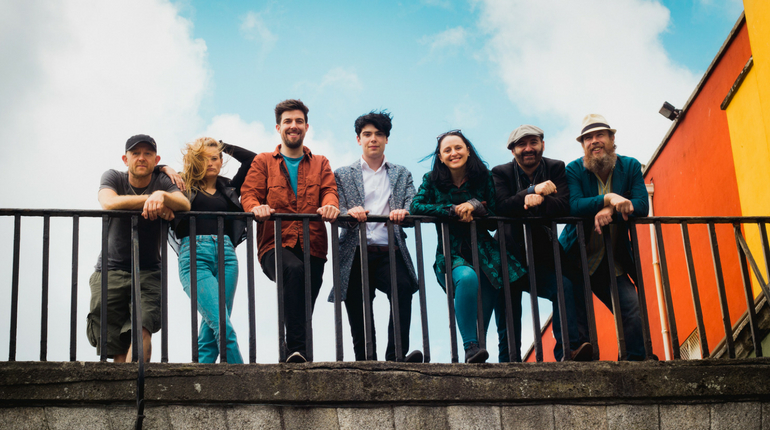
Phibsborough is set to receive an injection of culture this month, as Corps Ensemble Theatre Company opens the Bohemian Theatre in the heart of the area. A self-described “group of misfits”, the company has been developing steadily since its formation in 2015. Now standing strong at 14 diverse theatre practitioners, the group is currently rehearsing to present not one, but two distinct pieces to incoming audiences on October 29th, with Kissing the Witch and The Fetch Wilson.
Ensemble member and resident of the area Andy Crook tells The University Times that Phibsborough “really feels like it needs a theatre space”.
“It’s changing and becoming quite a buzzy place”, he says. Crook is referring to the influx of students, due to the expansion of the Technological University Dublin campus and an ever-expanding artistic community. “It’s getting quite hipstery”, he says.
As they develop roots in the area, members of the Corps Ensemble say they feel indebted to both Phizzfest, a local culture festival held every year, and the Bohemian bar, a pub in the area operated by Seamus and Alan McGeough, for helping them secure a venue that creative producer Hillary Dziminski calls “a little gem of a place”.
“There are so many companies trying to do things and unless you have somebody there to say: ‘We can help you in some way’, it’s so hard”, says Crook.
It’s very difficult as artists to make work consistently if you don’t have a space to grow in and incubate things
In a city where even the birds sing about the closures and dire lack of cultural spaces, the Corps Ensemble is beaming with pride to be swimming against the oncoming tide. “There’s a pinch of necessity to the decision”, Dziminski confesses, “because it’s very difficult as artists to make work consistently if you don’t have a space to grow in and incubate things … but it’s not an unconscious decision to do this in this environment”.
From October 29th, the first of a programmed double bill is The Fetch Wilson by Stewart Roche, which will be performed at 7pm to an intimate audience in an “eerie” upstairs space in the theatre. Following success in Edinburgh in 2018 and an Irish premiere in the New Theatre last April, this macabre one-man show will also grace London and Belfast stages in the coming weeks. Inspired by poet Edgar Allen Poe, this Dublin-based play, according to Dziminski, explores “the dark places you can go inside your own mind”.
Leaving you just enough time to grab a pint, the Corps Ensemble will then present acclaimed writer Emma Donoghue’s play Kissing the Witch at 8.30pm in the main space. Adapted by the writer herself in 2001 from her 1997 short story volume by the same name, the play focuses on five stories but, according to co-director Dziminski, weaves together threads from all 13 in the collection.
The play itself resides in the familiar realm of fairytale and myth, yet openly contemplates notions of women and power. “The women are in control”, asserts Crook, who is also co-directing. “They are very much playing with the audience’s expectations of what witches, power and women are.” Contemplating male agency in the piece, he stifles a chuckle. “Emma has written a man into it who we keep calling ‘the tool’ because he’s just fulfilling certain roles … this does kind of turn things on its head.”
Emma has written a man into it who we keep calling ‘the tool’ because he’s just fulfilling certain roles
Pushing this gender power struggle aside, Dziminski remains awestruck by the play’s relevance. She recalls waking up recently to Twitter headlines of politicians insulting Greta Thunberg, which she says made Donoghue’s line – “What do you think a witch is? A woman who’s stumbled across a bit of power, that’s all” – feel so “resonant” right now. “We’ve all these incredible young women trying to make a better world and they’re just being demonised for it”, she says.
The influence of this venture is sure to be felt far beyond Phibsborough, as the group’s members prioritise “actor-centred” ensemble work where diverse, loyal practitioners “get a lot of chances to wear different hats”.
Far from the intense “cast, rehearse, perform, disband” pattern of modern productions, which she compares in retrospect to “a bad break-up”, Dziminski says good theatre is all about connection. “Often when I see things that don’t necessarily work I feel it’s because there is a lack of connection – to the text itself or to each other. At the heart of what we do is connecting with each other as like-minded misfit weirdos and connecting outwards with people.”
For this company, or “family”, the best theatre is made … ensemble.






